#profit off poverty
Text
Show Up, Take Photos
The Meghans are global frauds. Every "good" deed, Every word & Every dollar is a GRIFT. "Nigerian girls & women" my arse.💔
Do they really expect us to believe that a global games event could ever be hosted by a country that repeatedly loses track of women & children? Harry and Meghan have the lowest of low in IQs but the rest of the world can see that THIS poverty tourism trip is yet another SUSSEX SCAM.
No country will send disabled athletes or veterans to compete in a country that cannot keep track of school kids. Shame on Nigeria's Defense Minister and all at Invictus who are involved in this fraudulent visit.
"Bring Back our Girls 2.0
"The abduction of the 287 children in Kaduna state on March 7, 2024 near the West African nation’s capital, is one of the largest school kidnappings in the decade since the kidnapping of schoolgirls in Borno state’s Chibok village in 2014 stunned the world. Analysts and activists say the security lapses that allowed that mass abduction remain..."
"One man was shot dead as he tried to save the students, school authorities said"
"The parallels between the two kidnappings have created more worry for parents, as even to this day nearly 100 of the Chibok girls remain missing."

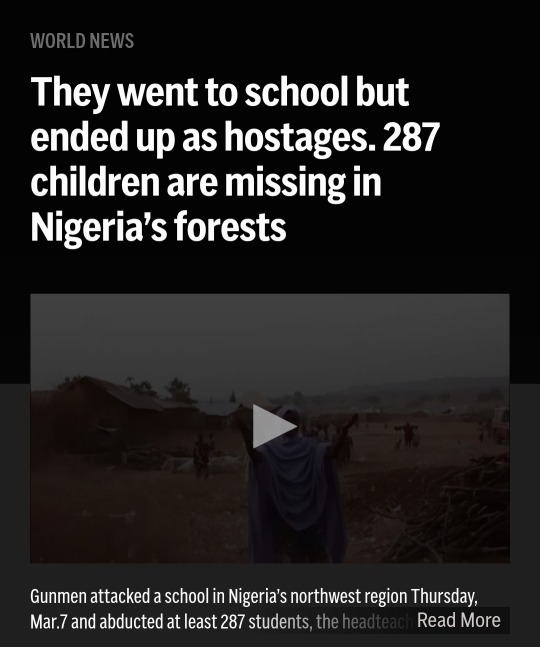
BY CHINEDU ASADU
March 8, 2024
ABUJA, Nigeria (AP) — "Security forces swept through large forests in Nigeria’s northwest region on Friday in search of nearly 300 children abducted from their school by motorcycle-riding gunmen in the latest mass kidnapping, which analysts and activists blamed on the failure of intelligence and a slow security response.
The abduction of the 287 children in Kaduna state, near the West African nation’s capital, is one of the largest school kidnappings in the decade since the kidnapping of schoolgirls in Borno state’s Chibok village in 2014 stunned the world. Analysts and activists say the security lapses that allowed that mass abduction remain.
The victims of the latest attack — among them at least 100 children aged 12 or under — were surrounded and marched into a forest just as they were starting the school day, said locals in Kuriga town, located 55 miles (89 kilometers) from the city of Kaduna. One man was shot dead as he tried to save the students, school authorities said."
J-P Mauro - published on 03/14/24
"With no word from the abductors, the bishops are calling on the state to identify the kidnappers and save the hostages.
The remote town of Kuriga, in Nigeria’s Kaduna state, is still reeling after dozens of armed extremists kidnapped hundreds of students out of their classes in broad daylight on the morning of March 7. Worried parents are now calling for government intervention, after days without any word from the abductors. As of March 13, the children have yet to be found.
The AP reports that at least 287 students were abducted – with about 100 of them aged 12 or under – making it one of the largest kidnappings since the 2014 abduction of the Chibok girls, when 275 girls were taken from their school by Boko Haram.
The parallels between the two kidnappings have created more worry for parents, as even to this day nearly 100 of the Chibok girls remain missing.
The March 7 kidnapping saw children taken from the school just as the day was starting, at around 8 a.m.. They were herded into the forest. It took authorities several hours to respond to the scene and begin a search operation, but it is unclear how deep into the forest the kidnappers went.
Locals have suggested that the abductors belong to a group of bandits who have been terrorizing remote villages in Nigeria’s northwest and central regions.
14-year-old Nigerian girl could declared a martyr. Nigeria is one of the places of most intense suffering for Christians in our day.
Bishop Wilfred Anagbe of Makurdi has called on the government to intercede on behalf of the Christian population, which he said is being targeted by these attacks. Bishop Anagbe told OSV:
“The kidnappings, killings and destroying churches we are experiencing every day are aimed at finishing Christians. We are worried that despite such killings and kidnappings, the government has never arrested anyone. As a church, we now demand that the government act quickly to stop these vices that continue to dishearten people.”
I try hard not to hate anyone, but The Meghans sure know how to push the right buttons. 🤐🤬
Safety 1st: The UK is unsafe but African countries where Nigerian schoolgirls are kidnapped & Zika Zones for childbearing royals are no problem.

Team Sussex: Global Court Jesters

#royal grifters#sussex scam#megxit#africa#african parks#scammers#nigeria#religious martyrs#christian persecution#kidnapping#nigerian girls#Nigerian Schoolchildren Kidnapped#Meghan & Harry are Frauds#Nigerian kidnappers#IPP Status#InGRIFTus#InFLICTus#racists#profit off poverty#poverty vultures#archewell is a fraud#show up do nothing#waaagh#spare us#worldwide privacy tour#misan harriman is a fraud#Sussex Global Court Jesters#poverty tourism#Bring Back Our Girls 2.0#meghan harry & misan are nigerian scammers
36 notes
·
View notes
Photo

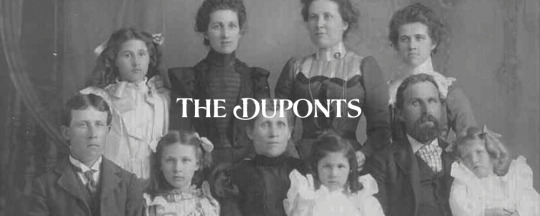



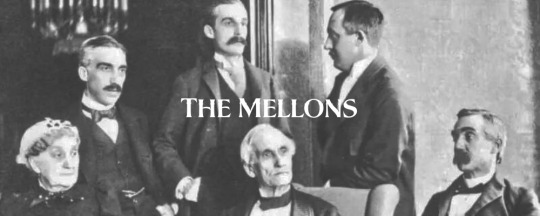
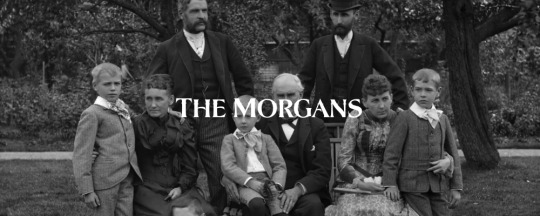
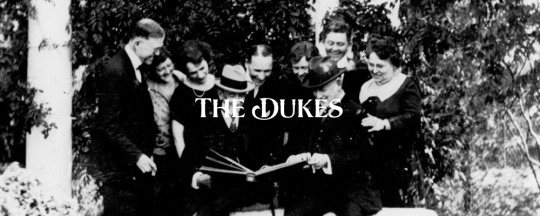

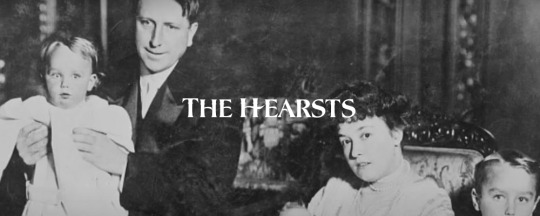
old money families of the gilded age
#they 100% profited off of other people's poverty and lives#plus there's the guy who essentially created walmart in there#old money#gilded age#the vanderbilts#the duponts#weren't they keeping it in the family?#the rockefellers#fuck them#the astors#the mellons#the morgans#the dukes#the roosevelts#the hearsts#1800s#19th century
168 notes
·
View notes
Text
Why do people ever pity major companies? Like they see target and fucking Walmart going to extreme lengths to prevent shoplifting and pity the company as if the root of the issue is mindless crime and not price gouging and corporate greed.
#if it were a small business then i could get it#you dont steal from small local businesses#but who gives a fuck about the well being of Walmart or Target?!#major corporation keep their employees in poverty in order to profit even more off of them#they are the fucking enemy#i will always side with the person shoplifting over a megacorporation#capitalism#anti capitalist
7 notes
·
View notes
Text
Every fun post on here that encourages people to have hobbies/be creative always gets an avalanche of "Some people are poor Karen" type reactions and respectfully, you're all super annoying. I've never lived above the poverty line and this is a list of hobbies I have that were cheap or entirely free:
Read books: Go to the library, lend a book from a friend
knitting, crochet, embroidery: Get some needles from the bargan store and ask around, people have leftovers from projects they'll happily give you. Thrift stores also often carry leftover fabric and other supplies. And talk about your hobby loud enough and an old lady will show up and gift you their whole collection, because there are way more old ladies with a closet full of wool than there are grandchildren who want to take up the hobby.
Origami/paper crafts: get some scrap paper and scissors, watch a youtube tutorial
walking: put on shoes open door
pilates/yoga/etc: get a mat or just use your carpet, watch a youtube tutorial
Houseplants: look online for people that swap plant cuttings. There are always people giving out stuff for free to get you started. If you're nice enough you'll probably get extra
gardening: You're gonna need some space for this one of course but you can just play around with seeds and cuttings from your grocery vegetables.
aquarium keeping is a bit of an obscure one but I got most of my stuff second hand for cheap or free and now I have a few thousand euro worth of material and plants.
drawing/art: You get very far just playing with bargan store materials. I did my entire art degree with mostly those.
writing: Rotate a cow in your head for free
cooking: again one you can make very expensive, but there are many budget recipes online for free. Look for African or Asian shops to get good rice and cheap spices.
Join a non-profit: Cities will have creative organisations who let you use woodworking machines or screen presses or laser cutters or 3D printers etc etc etc for a small fee. Some libraries also lend out materials.
candle making: You need some molds (cheap), wick, two old cooking pots for au bain marie melting and a ton of scrap candles, ask people to keep them aside for you.
a herbarium, flower pressing: Leaves are free, wildflowers too, ask if you can take from peoples gardens.
puzzles: thrift stores, your grandma probably
Citizen science: look for projects in your area or get the iNaturalist app
And lastly and most importantly: Share! Share your supllies, share your knowledge. Surround yourself with other creative people and before you know it someone will give you a pot of homemade jam and when you want to paint your kabinet someone will have leftover paint in just the right color and you can give them a homemade candle in return and everyone is having fun and building skills and friendships and not a cent is exchanged. We have always lived like this, it's what humans are build to do.
And all of it sure beats sitting behind a computer going "No stranger, I refuse to let myself have a good time."
Anyway I'm logging off bc I'm making some badges for a friend who cooked for me and then I'm going to fix some holes in everyones clothes.
20K notes
·
View notes
Text
with what's happening in sudan and the drc u still see ppl saying fucked up shit abt africa even after this time. ppl still fetishize rhodesia and colonial powers in africa saying "they're worse off now that they're independent" as if being brutalized ravaged and then abandoned by the rest of the world makes it easy to get back on ur feet again. ppl still think "this nation wracked by war and poverty and disease and famine did it to themselves so why should we help them?" it's so callous and anti-human. poverty and suffering isn't inherent in africa. peace and prosperity is possible for african nations. evil ass governments and corporations profit from the suffering of the people in the congo and human rights for congolese people means less money for the tech companies that profit off cobalt mined by child slaves. don't let western perceptions of these places fog up the fact that these are human beings and it does not have to be like this.
444 notes
·
View notes
Text
FCC strikes a blow against prison profiteering
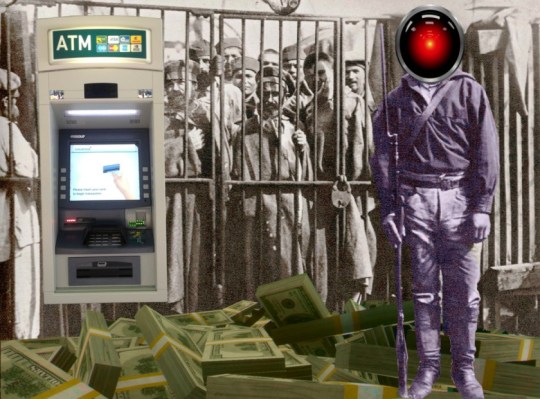
TOMORROW NIGHT (July 20), I'm appearing in CHICAGO at Exile in Bookville.

Here's a tip for policymakers hoping to improve the lives of the most Americans with the least effort: help prisoners.
After all, America is the most prolific imprisoner of its own people of any country in world history. We lock up more people than Stalin, than Mao, more than Botha, de Klerk or any other Apartheid-era South African president. And it's not just America's vast army of the incarcerated who are afflicted by our passion for imprisonment: their families and friends suffer, too.
That familial suffering isn't merely the constant pain of life without a loved one, either. America's prison profiteers treat prisoners' families as ATMs who can be made to pay and pay and pay.
This may seem like a losing strategy. After all, prison sentences are strongly correlated with poverty, and even if your family wasn't desperate before the state kidnapped one of its number and locked them behind bars, that loved one's legal defense and the loss of their income is a reliable predictor of downward social mobility.
Decent people don't view poor people as a source of riches. But for a certain kind of depraved sadist, the poor are an irresistible target. Sure, poor people don't have much money, but what they lack even more is protection under the law ("conservativism consists of the principle that there is an in-group whom the law protects but does not bind, and an out-group whom the law binds but does not protect" -Wilhoit). You can enjoy total impunity as you torment poor people, make them so miserable and afraid for their lives and safety that they will find some money, somewhere, and give it to you.
Mexican cartels understand this. They do a brisk trade in kidnapping asylum seekers whom the US has illegally forced to wait in Mexico to have their claims processed. The families of refugees – either in their home countries or in the USA – are typically badly off but they understand that Mexico will not lift a finger to protect a kidnapped refugee, and so when the kidnappers threaten the most grisly tortures as a means of extracting ransom, those desperate family members do whatever it takes to scrape up the blood-money.
What's more, the families of asylum seekers are not much better off than their kidnapped loved ones when it comes to seeking official protection. Family members who stayed behind in human rights hellholes like Bukele's El Salvador can't get their government to lodge official complaints with the Mexican ambassador, and family members who made it to the USA are in no position to get their Congressjerk to intercede with ICE or the Mexican consulate. This gives Mexico's crime syndicates total latitude to kidnap, torture, and grow rich by targeting the poorest, most desperate people in the world.
The private contractors that supply services to America's prisons are basically Mexican refugee-kidnappers with pretensions and shares listed on the NYSE. After decades of consolidation, the prison contracting sector has shrunk to two gigantic companies: Securus and Viapath (formerly Global Tellink). These private-equity backed behemoths dominate their sector, and have diversified, providing all kinds of services, from prison cafeteria meals to commissary, the prison stores where prisoners can buy food and other items.
If you're following closely, this is one of those places where the hair on the back of your neck starts to rise. These companies make money when prisoners buy food from the commissary, and they're also in charge of the quality of the food in the mess hall. If the food in the mess hall is adequate and nutritious, there's no reason to buy food from the commissary.
This is what economists call a "moral hazard." You can think of it as the reason that prison ramen costs 300% more than ramen in the free world:
https://pluralistic.net/2024/04/20/captive-market/#locked-in
(Not just ramen: in America's sweltering prisons, an 8" fan costs $40, and the price of water went up in Texas prisons by 50% during last summer's heatwave.)
It's actually worse than that: if you get sick from eating bad prison food, the same company that poisoned you gets paid to operate the infirmary where you're treated:
https://theappeal.org/massachusetts-prisons-wellpath-dentures-teeth/
Now, the scam of abusing prisoners to extract desperate pennies from their families is hardly new. There's written records of this stretching back to the middle ages. Nor is this pattern a unique one: making an unavoidable situation as miserable as possible and then upcharging people who have the ability to pay to get free of the torture is basically how the airlines work. Making coach as miserable as possible isn't merely about shaving pennies by shaving inches off your legroom: it's a way to "incentivize" anyone who can afford it to pay for an upgrade to business-class. The worse coach is, the more people you can convince to dip into their savings or fight with their boss to move classes. The torments visited upon everyone else in coach are economically valuable to the airlines: their groans and miseries translate directly into windfall profits, by convincing better-off passengers to pay not to have the same thing done to them.
Of course, with rare exceptions (flying to get an organ transplant, say) plane tickets are typically discretionary. Housing, on the other hand, is a human right and a prerequisite for human thriving. The worse things are for tenants, the more debt and privation people will endure to become home-owners, so it follows that making renters worse off makes homeowners richer:
https://pluralistic.net/2021/06/06/the-rents-too-damned-high/
For Securus and Viapath, the path to profitability is to lobby for mandatory, long prison sentences and then make things inside the prison as miserable as possible. Any prisoner whose family can find the funds can escape the worst of it, and all the prisoners who can't afford it serve the economically important function of showing the prisoners whose families can afford it how bad things will be if they don't pay.
If you're thinking that prisoners might pay Securus, Viapath and their competitors out of their own prison earnings, forget it. These companies have decided that the can make more by pocketing the difference between the vast sums paid by third parties for prisoners' labor and the pennies the prisoners get from their work. Remember, the 13th Amendment specifically allows for the enslavement of incarcerated people! Six states ban paying prisoners at all. North Carolina caps prisoners' wages at one dollar per day. The national average prison wage is $0.52/hour. Prisoners' labor produces $11b/year in goods and services:
https://www.dollarsandsense.org/archives/2024/0324bowman.html
Forced labor and extortion are a long and dishonorable tradition in incarceration, but this century saw the introduction of a novel, exciting way of extracting wealth from prisoners and their families. It started when private telcos took over prison telephones and raised the price of a prison phone call. These phone companies found willing collaborators in local jail and prison systems: all they had to do was offer to split the take with the jailers.
With the advent of the internet, things got far worse. Digitalization meant that prisons could replace the library, adult educations, commissary accounts, letter-mail, parcels, in-person visits and phone calls with a single tablet. These cheaply made tablets were offered for free to prisoners, who lost access to everything from their kids' handmade birthday cards to in-person visits with those kids.
In their place, prisoners' families had to pay huge premiums to have their letters scanned so that prisoners could pay (again) to view those scans on their tablets. Instead of in-person visits, prisoners families had to pay $3-10/minute for a janky, postage-stamp sized video. Perversely, jails and prisons replaced their in-person visitation rooms with rooms filled with shitty tablets where family members could sit and videoconference with their incarcerated loved ones who were just a few feet away:
https://pluralistic.net/2024/02/14/minnesota-nice/#shitty-technology-adoption-curve
Capitalists hate capitalism. The capital classes are on a relentless search for markets with captive customers and no competitors. The prison-tech industry was catnip for private equity funds, who bought and "rolled" up prison contractors, concentrating the sector into a duopoly of debt-laden companies whose ability to pay off their leveraged buyouts was contingent on their ability to terrorize prisoners' families into paying for their overpriced, low-quality products and services.
One particularly awful consequence of these rollups was the way that prisoners could lose access to their data when their prison's service-provider was merged with a rival. When that happened, the IT systems would be consolidated, with the frequent outcome that all prisoners' data was lost. Imagine working for two weeks to pay for a song or a book, or a scan of your child's handmade Father's Day card, only to have the file deleted in an IT merger. Now imagine that you're stuck inside for another 20 years.
This is a subject I've followed off and on for years. It's such a perfect bit of end-stage capitalist cruelty, combining mass incarceration with monopolies. Even if you're not imprisoned, this story is haunting, because on the one hand, America keeps thinking of new reasons to put more people behind bars, and on the other hand, every technological nightmare we dream up for prisoners eventually works its way out to the rest of us in a process I call the "shitty technology adoption curve." As William Gibson says, "The future is here, it's just not evenly distributed" – but the future sure pools up thick and dystopian around America's prisoners:
https://pluralistic.net/2021/02/24/gwb-rumsfeld-monsters/#bossware
My background interest in the subject got sharper a few years ago when I started working on The Bezzle, my 2023 high-tech crime thriller about prison-tech grifters:
https://us.macmillan.com/books/9781250865878/thebezzle
One of the things that was on my mind when I got to work on that book was the 2017 court-case that killed the FCC's rules limit interstate prison-call gouging. The FCC could have won that case, but Trump's FCC chairman, Ajit Pai, dropped it:
https://arstechnica.com/tech-policy/2017/06/prisoners-lose-again-as-court-wipes-out-inmate-calling-price-caps/
With that bad precedent on the books, the only hope prisoners had for relief from the FCC was for Congress to enact legislation specifically granting the agency the power to regulate prison telephony. Incredibly, Congress did just that, with Biden signing the "Martha Wright-Reed Just and Reasonable Communications Act" in early 2023:
https://www.congress.gov/bill/117th-congress/senate-bill/1541/text
With the new law in place, it fell to the FCC use those newfound powers. Compared to agencies like the FTC and the NLRB, Biden's FCC has been relatively weak, thanks in large part to the Biden administration's refusal to defend its FCC nomination for Gigi Sohn, a brilliant and accomplished telecoms expert. You can tell that Sohn would have been a brilliant FCC commissioner because of the way that America's telco monopolists and their allies in the senate (mostly Republicans, but some Democrats, too) went on an all-out offensive against her, using the fact that she is gay to smear her and ultimately defeat her nomination:
https://pluralistic.net/2023/03/19/culture-war-bullshit-stole-your-broadband/
But even without Sohn, the FCC has managed to do something genuinely great for America's army of the imprisoned. This week, the FCC voted in price-caps on prison calls, so that call rates will drop from $11.35 for 15 minutes to just $0.90. Both interstate and intrastate calls will be capped at $0.06-0.12/minute, with a phased rollout starting in January:
https://arstechnica.com/tech-policy/2024/07/fcc-closes-final-loopholes-that-keep-prison-phone-prices-exorbitantly-high/
It's hard to imagine a policy that will get more bang for a regulator's buck than this one. Not only does this represent a huge savings for prisoners and their families, those savings are even larger in proportion to their desperate, meager finances.
It shows you how important a competent, qualified regulator is. When it comes to political differences between Republicans and Democrats, regulatory competence is a grossly underrated trait. Trump's FCC Chair Ajit Pai handed out tens of billions of dollars in public money to monopoly carriers to improve telephone networks in underserved areas, but did so without first making accurate maps to tell him where the carriers should invest. As a result, that money was devoured by executive bonuses and publicly financed dividends and millions of Americans entered the pandemic lockdowns with broadband that couldn't support work-from-home or Zoom school. When Biden's FCC chair Jessica Rosenworcel took over, one of her first official acts was to commission a national study and survey of broadband quality. Republicans howled in outrage:
https://pluralistic.net/2023/11/10/digital-redlining/#stop-confusing-the-issue-with-relevant-facts
The telecoms sector has been a rent-seeking, monopolizing monster since the days of Samuel Morse:
https://pluralistic.net/2024/07/18/the-bell-system/#were-the-phone-company-we-dont-have-to-care
Combine telecoms and prisons, and you get a kind of supermonster, the meth-gator of American neofeudalism:
https://www.nbcnews.com/news/us-news/tennessee-police-warn-locals-not-flush-drugs-fear-meth-gators-n1030291
The sector is dirty beyond words, and it corrupts everything it touches – bribing prison officials to throw out all the books in the prison library and replace them with DRM-locked, high-priced ebooks that prisoners must toil for weeks to afford, and that vanish from their devices whenever a prison-tech company merges with a rival:
https://pluralistic.net/2024/04/02/captive-customers/#guillotine-watch
The Biden presidency has been fatally marred by the president's avid support of genocide, and nothing will change that. But for millions of Americans, the Biden administration's policies on telecoms, monopoly, and corporate crime have been a source of profound, lasting improvements.
It's not just presidents who can make this difference. Millions of America's prisoners are rotting in state and county jails, and as California has shown, state governments have broad latitude to kick out prison profiteers:
https://pluralistic.net/2023/05/08/captive-audience/#good-at-their-jobs

Support me this summer on the Clarion Write-A-Thon and help raise money for the Clarion Science Fiction and Fantasy Writers' Workshop!

If you'd like an essay-formatted version of this post to read or share, here's a link to it on pluralistic.net, my surveillance-free, ad-free, tracker-free blog:
https://pluralistic.net/2024/07/19/martha-wright-reed/#capitalists-hate-capitalism

Image:
Cryteria (modified)
https://commons.wikimedia.org/wiki/File:HAL9000.svg
CC BY 3.0
https://creativecommons.org/licenses/by/3.0/deed.en
--
Flying Logos (modified)
https://commons.wikimedia.org/wiki/File:Over_$1,000,000_dollars_in_USD_$100_bill_stacks.png
CC BY-SA 4.0
https://creativecommons.org/licenses/by-sa/4.0/deed.en
--
kgbo (modified)
https://commons.wikimedia.org/wiki/File:Suncorp_Bank_ATM.jpg
CC BY-SA 3.0
https://creativecommons.org/licenses/by-sa/3.0/deed.en
#pluralistic#prison tech#fcc#martin hench#marty hench#the bezzle#captive audiences#carceral state#worth rises#bezzles#Martha Wright-Reed Just and Reasonable Communications Act#capitalists hate capitalism#shitty technology adoption curve
347 notes
·
View notes
Text
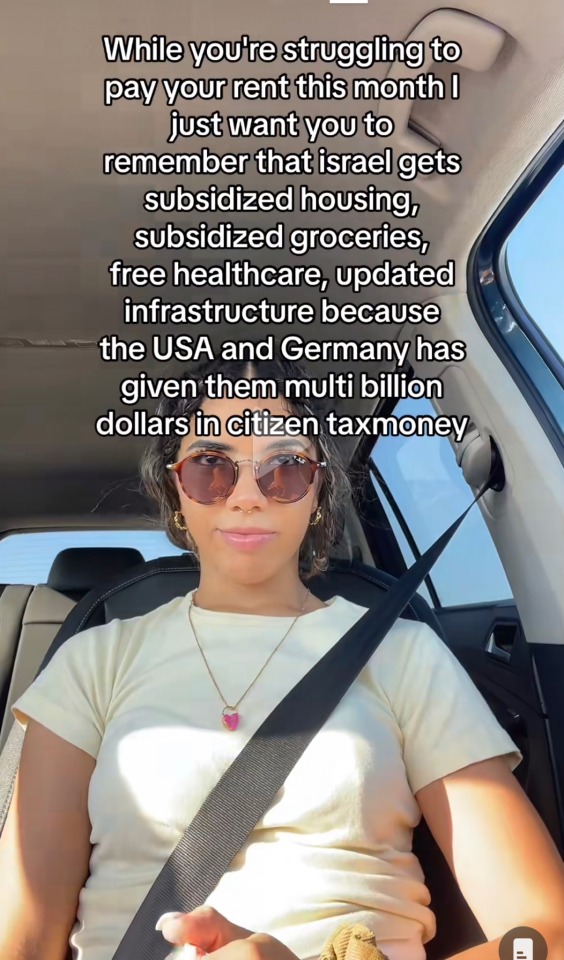
[id: screenshot of a tiktok of a woman with the text: while you’re struggling to pay your rent this month I just want you to remember that israel gets subsidized housing, subsidized groceries, free healthcare, updated infrastructure because the USA and Germany has given them multi billion dollars in citizen tax money.]
this is a dangerous narrative. the “im struggling to pay my rent because of my taxes and my taxes go to subsidize cushy lives in israel” is dangerous and a short logical leap from “jews are stealing our hard earned money. the working class and poor are oppressed by jews.”
and that’s not how the money works, much of it goes towards the military and “aid packages” represent value not liquid cash (so weapons sent are represented in $$$ form.) and the state operates the way above bc ben gurion & co were socialists. plus, as far as i know, things are relatively similar to the uk with high costs of living but subsidized housing, public healthcare etc.
money from germany often does not go whatsoever into the pockets of israeli holocaust survivours (which is what it’s desiginated for as holocaust reparations (and bc companies that significantly contribute to the german GDP collaborated with nazis/used the labour of enslaved jews) ) (NOTE: it's military aid; money to compensate holocaust victims and survivors ended in 2018, which as i mentioned, did not go into individuals pockets) let alone israelis who are not survivours. many holocaust survivours living there live in poverty. there are literally videos of some picking through refuse produce.
it’s deeply heinous that palestinian american & palestinian german taxes go in part towards the weapons used to genocide palestinians including their own families. OP's post is not about that. she is not acknowledging that or really any connection between the USA and the occupation forces. instead OP is making it sound like israelis live comfortable lives with little expenditures off of the backs of american workers which is a few steps away from protocols shit at best. the idea that jews are enslaving or profitting off on those who are not jewish, especially the working class & poor, is textbook antisemitic conspiracy.
1K notes
·
View notes
Text
The Guardian: Southern Poverty Law Center workers vote to remove CEO after ‘inhumane’ layoffs
Empty words won't give us or the communities we served their livelihoods back.
Sign in support of SPLC's laid-off staff
#ohhhhhh we've hit the guardian!#IT'S ON NOW#splc#union solidarity#union busting#layoffs#signal boost#lgbtqia#immigrant rights#immigrant justice#civil rights
291 notes
·
View notes
Text
[“The poverty debate could do more to recognize the powerful effects of rejection on a person’s self-confidence and stamina. Applying for an apartment or job and being turned down ten, twenty, forty times—it can wear you out. Theories about neighborhood selection or joblessness often assume low-income people are more or less “rational actors” who recognize trade-offs and make clear choices. The reality is that many are “exhausted settlers” who accept poor housing in a disadvantaged neighborhood or a dead-end or illicit job after becoming depleted and disheartened from trying and trying and failing and failing. The shame of rejection not only can pressure people to accept undesirable circumstances today; it can also discourage them from striving for something better tomorrow.”]
matthew desmond, from evicted: poverty and profit in the american city, 2016
#matthew desmond#history stuff#currently reading#inseparable from the sense of foreshortened future that comes with post traumatic stress
2K notes
·
View notes
Note
beer killed my father . he had a disease which destroyed his body and strained his relationships with his wife, his friends, and his children. Alcohol destroys everything it touches, theres a reason you see so many liquor stores in poor neighborhoods. don’t be fucking obtuse. Prohibition obviously doesn’t work, but I wish alcohol was taxed higher. And i want the CEO of Heineken on the guillotine right after Jeff Bezos.
before anything, i want to let you know that i am incredibly sorry about your father. alcohol has decimated entire generations of my family, played a crucial role in the neglectful family structure i spent the first 19 years of my life suffering under, + played a minor but not insignificant role in my brother's death. i would never undermine or dismiss that in anyone.
i used to feel very similarly to you, in large part because my mother is a recovering alcoholic who raised me to believe that alcohol is a magic poison which turns people into monsters + i, being her child, probably inherited a disease which would also turn me into a monster if i chose to drink. it's a deeply painful + understandable response to the pain that alcohol can cause.
my first question is, does alcohol really "destroy everything it touches"? are there not millions of people who engage with alcohol, in varying degrees of recreational use, who experience minimal or no negative impacts? or do you believe that everyone who drinks alcohol in any capacity is experiencing severe destruction in their lives as a result? does the existence of people for whom alcohol enriches their lives (or is a neutral presence) at all invalidate your experience, or your father's?
my second question is, you've identified that there are 'so many liquor stores in poor neighborhoods' (i would add there is a lot of alcohol in rich neighborhoods, just distributed in less stigmatized ways, like boutique wineries + fancy bars), do you think that companies are strategically attempting to create alcohol dependencies among poor people, or do you think that poverty creates the pain, hopelessness, + desperation which can fuel an alcohol habit (which is then exacerbated by intergenerational trauma + community alcohol culture).
i feel no allegiance to liquor companies- they absolutely do make the bulk of their profits off of people who are drinking in a way that is destroying their lives (unsure if i trust the exact scope of the research in that link but i trust the gist). however, liquor companies love the disease model, because it exempts them from responsibility. if alcoholism is truly a genetic disease, then liquor companies, bars, package stores hold no fault in the development of destructive drinking habits + community norms (natasha Schüll discusses this in her book about gambling addiction)- the people were already sick + would be getting it somewhere else, anyway, right? but as you have correctly identified, liquor companies help create the structures which turn alcohol use into an accessible + normalized mode of self-destruction.
my third question is, will taxing liquor help the real problem? yes, it reduces alcohol consumption, but does it reduce addiction? or does it make cheapskates like me say "i'm not fucking paying for that" while individuals who consume alcohol compulsively either eat the cost or turn to more illicit ways of obtaining alcohol. or, rephrased, is the problem that alcohol is too accessible? is alcohol a magical poison which turns 'normal' people into 'alcoholics'? alternatively, is alcoholism a genetic condition, unrelated to any outside circumstances, which is triggered by drinking?
or: is alcoholism one of many ways in which people who are experiencing hopelessness, pain, grief, poverty, trauma, etc use to numb themselves, harm themselves, + make life feel more bearable? at this point, i do believe there is at least a temperament factor which makes people more likely to use substances over other forms of escape (hence why my brother used substances while i turned to anorexia + do not struggle with substance use). are we actually addressing the problem if we make it more expensive (thus, mind you, further impoverishing people with alcohol addictions!)? or are we shifting the pain these people are experiencing to either other avenues (opioids, other drugs, totally different ways of coping which are often just as destructive) or an unregulated, underground alcohol market.
the way you are viewing alcohol, alcohol is a unique substance which is manufacturing or feeding illness in people in order to make them behave in ways which destroy their lives + the lives of others. the way i am viewing it, alcohol is a presence which can fill a void that is being created in people's lives as a response to structural, communal, or social suffering. when alcohol is painted as the cause of this pain, we are able to look the other way from a which world is structured to cause an immense amount of people to suffer needlessly. at the same time, the common sense observation that many of us engage with alcohol in ways which do not destroy our lives, as well as the knowledge that prohibition does not work, prevents the erasure of alcohol from public or private life.
who benefits from the belief that alcohol is a uniquely corrupting substance? what lessons did we actually learn from prohibition- is trying to do it to a lesser degree (make alcohol less accessible) actually going to do anything? when the price of opioids went up due to dea crackdowns, did people stop buying opioids or did the market flood with cheap + deadly fentanyl? is the problem that people are drinking or that they are suffering?
1K notes
·
View notes
Text
Historical Analysis: class and injustice in 'The Ressurrectionists' minisode
Alternate title: why we're tempted to be upset with Aziraphale and why that's only halfway fair
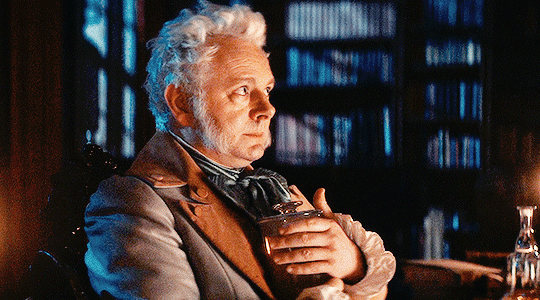
Okay so first off huge thanks to @makewayforbigcrossducks for asking the question (and follow-up questions lol) that brought me to put these thoughts all together into a little history nerd ramble. That question being, Why is Aziraphale so clueless? Obviously, from a plot perspective, we know we need to learn some lessons about human moral dilemmas and injustices. But from a character perspective? A lot of this minisode is about Aziraphale being forced to confront the flaws of heavenly logic. This whole idea that "poverty is ineffable" basically boils down to 'yeah some people are poor, but their souls can be saved just as if not more easily that way, so it's not our problem and they probably deserve it anyway for not working hard enough,' a perspective that persists in many modern religious circles. Aziraphale isn't looking at the human factor here, he's pretty much purely concerned about the dichotomy of good and wicked human behavior and the spiritual consequences thereof, because that's what he's been told to believe. His whole goal is to "show her the error of her ways." He believes, quite wholeheartedly, that he's helping her in the long run.
"the lower you start, the more opportunities you have"
So here's what we're asking ourselves: Why did it take him so bloody long to realize how stupid that is? Sure, he's willing to excuse all kinds of things in the name of ineffability, but if someone in the year of our lord 2023 told me he was just now realizing that homelessness was bad after experiencing the past two centuries, I'd be resisting the urge to get violent even if he WAS played by Michael Sheen.
Historical context: a new type of poverty
Prior to the 19th century (1800s), poverty was a very different animal from what we deal with now. The lowest classes went through a dynamic change leading up to the industrial revolution, with proto-industrialization already moving people into more manufacture-focused tasks and rapid urbanization as a result of increasingly unlivable conditions for rural peasantry. The enclosure of common lands and tennancies by wealthy landowners for the more profitable sheep raising displaced lots of families, and in combination with poor harvests and rising rents, many people were driven to cities to seek out new ways of eeking out a living.
Before this, your ability to eat largely would have depended on the harvest in your local area. This can, for our purposes, be read as: you're really only a miracle away from being able to survive the winter. Juxtapose this, then, with the relatively new conundrum of an unhoused urban poor population. Now if you want to eat, you need money itself, no exceptions, unless you want to steal food. Charity at the time was often just as much harm as good, nearly always tied deeply up in religious attitudes and a stronger desire to proselytize than improve quality of lie. As a young woman, finding work in a city is going to be incredibly difficult, especially if you're not clean and proper enough to present as a housemaid or other service laborer. As such, Elspeth turns to body snatching to try to make a better life for herself and Wee Morag. She's out of options and she knows it.
You know who doesn't know that? Aziraphale.
The rise of capitalism
The biggest piece of the puzzle which Aziraphale is missing here is that he hasn't quite caught onto the concept of capitalism yet. To him, human professions are just silly little tasks, and she should be able to support herself if she just tried. Bookselling, weaving, farming, these are all just things humans do, in his mind. He suggests these things as options because it hasn't occurred to him yet that Elspeth is doing this out of desperation, but he also just doesn't grasp the concept of capital. Crowley does, he thinks it's hilarious, but Aziraphale is just confused as to why these occupations aren't genuine options. Farming in particular, as briefly touched on above, was formerly carried out largely on common land, tennancies, or on family plots, and land-as-capital is an emerging concept in this period of time (previously, landowners acted more like local lords than modern landlords). Aziraphale just isn't picking up on the fact that money itself is the root issue.
Even when he realizes that he fucked up by soup-ifying the corpse, he doesn't offer to give them money but rather to help dig up another body. He still isn't processing the systemic issues at play (poverty) merely what's been immediately presented to him (corpses), and this is, from my perspective, half a result of his tunnel-vision on morality and half of his inability to process this new mode of human suffering.
Half a conclusion and other thoughts
So we bring ourselves back around to the question of Aziraphale's cluelessness. Aziraphale is, as an individual, consistently behind on the times. He likes doing things a certain way and rarely changes his methodology unless someone forces his hand. Even with the best intentions, his ability to help in this minisode is hindered by two points: 1)his continued adherance to heavenly dogma 2)his inability to process the changing nature of human society. His strongest desire at any point is to ensure that good is carried out, an objective good as defined by heavenly values, and while I think it's one of his biggest character hangups, I also can't totally blame him for clinging to the only identity given to him or for worrying about something that is, as an ethereal being, a very real concern. Unfortunately, he also lacks an understanding of the actual human needs that present themselves. Where Elspeth knows that what she needs is money, Aziraphale doesn't seem to process that money is the only solution to the immediate problem. This is in part probably because a century prior the needs of the poor were much simpler, and thus miraculous assistance would never have interfered with 'the virtues of poverty'. (You can make someone's crops grow, and they'll eat well, but giving someone money actually changes their economic status.) Thus, his actions in this episode illustrate the intersection of heavenly guidelines with a weak understanding of modern structures.
This especially makes sense with his response to being told to give her money. Our angel is many things, but I would never peg him as having any attachment to his money. He's not hesitant because he doesn't want to part with it, he's hesitant because he's still scared it's the wrong thing to do in this scenario. He really is trying to be good and helpful. So yes, we're justifiably pretty miffed to see him so blatantly unaware and damaging. He definitely holds a lot of responsibility for the genuine tragedy of this minisode, and I think Crowley pointing out that it's 'different when you knew them' is an extremely important moment for Aziraphale's relationship with humanity. Up until now, he's done a pretty good job insulating himself from the capacity of humans for nastiness, his seeming naivity at the Bastille being case in point.
In the end, I think Aziraphale's role in this minisode is incredibly complex, especially within its historical context. He's obstinate and clueless but also deeply concerned with spiritual wellbeing (which is, to Aziraphale, simply wellbeing) and doing the right thing to be helpful. While it's easy to allow tiny Crowley (my beloved) to eclipse the tragic nature and moral complexity of this minisode, I think in the end it's just as important to long-term character development as 'A Companion to Owls'. We saw him make the right choice with Job's children, and now we see him make the wrong choice. And that's a thing people do sometimes, a thing humans do.
~~~
also tagging @ineffabildaddy, @kimberellaroo, and @raining-stars-somewhere-else whose comments on the original post were invaluable in helping me organize my thoughts and feelings about this topic. They also provided great insight that, in my opinion, is worth going and reading for yourself, even if it didn't factor into my final analysis/judgement.
If I missed anything or you have additional thoughts, please please share!!! <3
#this was a monster of a post to write#in no small part because I was relying more on my own historical knowledge than usual so I had to double check myself constantly#but I had a lot of fun and I hope you enjoyed it as much as I did#good omens#good omens 2#good omens analysis#good omens meta#the resurrectionists#good omens season 2#good omens minisode#nerd shit#ineffable husbands#aziraphale good omens
572 notes
·
View notes
Text
You know, for the most part the plasma center is the plasma center: part of an exploitative industry that profits off of poverty (and produces genuinely necessary medicines), sure, but also just people doing their thing. It's routine. You plan it and you go twice a week and you don't think much of it.
And then sometimes you see someone leaving the center holding a copy of "investing for dummies" and it hits you all over how grim the whole thing is. I'm sorry bud, I wish there was an option that would realistically help you out that didn't involve selling blood because I get the feeling that a lot of the stuff in that book is out of reach for you.
649 notes
·
View notes
Text
Try to imagine Trump going to campaign HQ to reassure those working to get him elected with a speech like this after one of his unwelcome surprises.
Of course, that's impossible. This classy speech is all about "we" — the team, and the American people — although of course it's got a few "I's" in there to contrast herself with Trump and sketch out goals.
youtube
First five minutes: Squaring the circle of saluting Biden graciously, thanking and reassuring his election team, and moving forward
05:40 - rundown of major accomplishments of President Biden's administration
8:45 Harris lays out how she sees this election and I'm actually gonna transcribe it despite my arthritis because YES YES YES. (It's not very long.)
"It is my great honor to go out and EARN this nomination, and to win.
"So in the days and weeks ahead, I together with you will do everything in my power to unite the Democratic party, to unite our nation, and to win this election.
"You know, as many of you know, before I was elected as Vice President, before I was elected as United States Senator, I was the elected Attorney General of California, and before that I was a courtroom prosecutor. In those roles, I took on perpetrators of all kinds. [chuckles start around the room, she smiles.] Predators who abused women. Fraudsters who ripped off consumers. Cheaters who broke the rules for their own gain. So hear me when I say: I know Donald Trump's type.
"And in this campaign I will proudly — I will proudly put my record against his. As a young prosecutor, when I was in the Alameda County District Attorney's Office, I specialized in cases involving sexual abuse. Donald Trump was found liable by a jury for committing sexual abuse. As Attorney General of California I took on one of our country's largest for-profit colleges and put it out of business. Donald Trump ran a for-profit college, Trump University, that was forced to pay $25 million to the students it scammed. As District Attorney, to go after polluters, I created one of the first environmental justice units in our nation. Donald Trump stood in Mar-o-lago and told Big Oil lobbyists he would do their bidding for a $1 billion campaign contribution. During the foreclosure crisis, I took on the big Wall Street banks and won $20 billion for California families, holding those banks accountable for fraud. Donald Trump was just found guilty of 34 counts of fraud.
"But make no mistake — all that being said, this campaign is not just about us versus Donald Trump. There is more to this campaign than that. Our campaign has always been about two different versions of what we see as the future of our country, two different visions for the future of our country. One focused on the future, the other focused on the past.
"Donald Trump wants to take our country backward, to a time before many of our fellow Americans had full freedoms and rights.
"But we believe in a brighter future that makes room for all Americans. We believe in a future where every person has the opportunity not just to get by, but to get ahead. [Calls of "That's right!"] We believe in a future where no child has to grow up in poverty, where every person can buy a home, start a family and build wealth, and where every person has access to paid family leave and affordable child care. That's the future we see! [Applause.] Together we fight to build a nation where every person has affordable healthcare, where every worker is paid fairly, and where every senior can retire with dignity.
"All of this is to say that building up the middle class will be a defining goal of my presidency. Because we here know that when our middle class is strong, America is strong. And we know that's not the future Donald Trump is fighting for. He and his extreme Project 2025 will weaken the middle class and bring us backward — please do note that — back to the failed trickle-down policies that gave huge tax breaks to billionaires and big corporations and made working families pay the cost, back to policies that put Medicare and Social Security on the chopping block, back to policies that treat healthcare as only a privilege for the wealthy, instead of what we all know it should be, which is a right for every American.
"America has tried these economic policies before. They do not lead to prosperity. They lead to inequity and economic injustice. And we are NOT GOING BACK. We are not going back. (You're not taking us back.)
"Our fight for the future is also a fight for freedom. Generations of Americans before us have led the fight for freedom from our founders to our framers, to the abolitionists and the suffragettes, to the Freedom Riders and farm workers. And now I say, team, the baton is in our hands. We, who believe in the sacred freedom to vote. We, who are committed to pass the John Lewis Voting Rights Advancement Act and the Freedom to Vote Act. We, who believe in the freedom to live safe from gun violence, and that's why we will work to pass universal background checks, red flag laws, and an assault weapons ban. We, who will fight for reproductive freedom, knowing if Trump gets the chance, he will sign a national abortion ban to outlaw abortion in every. single. state—but we are not going to let that happen.
"It is this team here that is going to help in this November to elect a majority of members of the United States Congress who agreethe government should not be telling a woman what to do with her body. And when Congress passes a law to restore reproductive freedoms, as President of the United States I will sign it into law! [cheers, someone shouts "we the people!"] "Indeed, we the people.
"So ultimately, to all the friends here I say: in this election we know we each face a question. What kind of country do we want to live in? A country of freedom, compassion and rule of law, ["Yes!"] or a country of chaos, fear, and hate? [Boos] You all are here because you as leaders know we each — including our neighbors and our friends and our family — we each as Americans have the power to answer that question. That's the beauty of it, the power of the people. We each have the ability to answer that question.
"So in the next 106 days—" looks around the room smiling at various people, "We have work to do. We have doors to knock on, we have people to talk to, we have phone calls to make, and we have an election to win. …" [a few final crowd -whipping-up platitudes like "Do we believe in freedom"]
------
Note: Yes, I know, she spoke about rights for all Americans without getting into any specifics besides reproductive and voting rights, because those two are core values of the Democratic party and the ones most Americans agree with. Unifying a party and coalition building starts by finding common ground. The approach Harris is taking will pull away some old-school moderate Republicans who are reluctant to leave their party even as it changes beyond recognition, but who really don't like Trump. Many of them have been poisoned more or less by Fox News, so they need to see she's not a crazy crazy liberal.
108 notes
·
View notes
Text
It's a missed opportunity that despite Roy Harper and Jason Todd hanging out now there's been never any tension between about them or exploration of their differing approaches and perspectives on the drug crisis. Particularly because for both of them it is deeply personal.
Roy Harper.
Roy became addicted to drugs in the 1971 comic Snowbirds Don't Fly which was Neil Adam’s and Dennis O'neill's attempt to tackle the "youth's greatest problem!" drug use and addiction. I feel like all most people know is that Speedy took drugs and Ollie took it badly, but that honestly ignores the whole point of the story. The story challenged contextual stigma around addiction and drug use as a personal failing or something that only happened to weak people. It explored how it could happen to anyone, even a hero like Speedy. It focused on the social factors such as racism and poverty and how they push people into substance abuse as a way to cope. It even turns the trope of the evil foreign drug cartel on its head by making the guy behind the drug supply a wealthy white American man in who runs a Pharmaceutical company, doesn't do drugs, and actively mocks the people he profits off the suffering of.


The point therefore is twofold. Firstly, drug users are people just like you and me and it is vital to be compassionate to people struggling with addiction. Ollie who yells at and hits Roy and leaves him due to anger and fear is clearly in the wrong. Hal and Dinah who look after Roy and stand beside him at his friend's funeral and as he confronts Ollie are clearly in the right. Secondly, the solution is not to focus on the drugs but instead to deal with the systemic problems of inequality, oppression, trauma and disenfranchised youth.
Despite parts of it ageing bad (the use of slurs was to demonstrate the damage of racism, but I feel uncomfortable having slurs uncensored in a comic book written by white authors) it is a surprisingly progressive take on addiction for a mainstream 70s DC comic. It also clearly demonstrates Roy's opinion on the drug problem and how to deal with it. He sees anger and going after dealers/manufacturers (like Ollie did) to not be enough. Instead the real change comes from helping the people in that situation by improving their lives and compassionately helping them at their worst.
Enter Jason Todd.
For context Jason Todd has had almost his entire life shaped by trauma of substance abuse. His (adoptive) mother Catherine struggled with addiction and overdosed just months before he met Batman, effectively orphaning him. Soon after he was found by Batman who essentially drafted him into his crusade on crime, not considering that being a vigilante may be potentially damaging for an already traumatised child.
But when he came back in UTRH he decided he could best help Gotham if he killed (largely non-costumed) criminals and controlled the city's criminal underworld himself. After violently assuming control of the drug trade, Jason imposed his own rules for dealers, most famously that he would kill anyone who sold drugs to children or near schools. Later while incarcerated Jason Todd killed 82 Blackgate inmates (and harmed over a hundred) by poisoning the prison food. This mass murder was intrinsically indiscriminate and due to the US prison system it is reasonable to assume people charged with drug offences were included in the death count.
Jason does have deep childhood trauma associated with addiction and drug use and wants to help prevent suffering. That being said, his approach treats drugs as a criminal problem to be eradicated or controlled, not just a symptom of deeper social issues. He kills people who sell drugs to kids, rather than helping building a support system so kids aren't pushed into abusing substances to cope and people don't have to deal to survive.
What does this mean?
Scott Lobdell got details of Roy's addiction wrong and distorted him into a reckless idiot who has been ostracised from the community. But if it was done right their interaction and opposing perspectives/experiences could be really interesting. Both hate drugs and the drug trade, but the way they conceptualise this hatred differs significantly.
Roy focuses on helping the individual and addressing deeper social problems, seeing drugs as a devastating but ultimately symptomatic. Jason sees drug use as first and foremost a criminal issue, with true benefits being achieved through controlling the criminal underworld.
Roy's priority is therefore supporting people struggling with addiction and showing compassion for their situation. Jason doesn't really focus on ways to help the individuals suffering from addiction, as much as mitigating the overall harm and fitting the drug trade into parameters he views as acceptable.
I think it would add needed complexity to their relationship (and to Jason's redemption if we're going that route) as well as dealing with the more 'war-on-drug' elements of UTRH. Also it would help Roy stand on his own as a strong, articulate leader with a dark past rather than being (at least for a while) reduced to essentially Jason's sidekick.
#Jason todd#roy harper#utrh#Oliver queen#green arrow#arrowfamily#speedy#red hood#dc comics#red arrow#bruce wayne#arsenal#dinah lance#hal jordan#dc#hard travelling heroes#anti rhato#Jason todd critical#(not really but it is critical of some of his behaviours as red hood so I wanted to be safe)#batman#I left Adams out of the original post somehow but I’ve fixed it now
143 notes
·
View notes
Note
Hiii how would you respond to the ""argument"" that some people make that: when the Berlin Wall fell, which way did people go? impling that those on the communist side were eager to go over to the capitalist one. Thx
West Germany had been bribing people with gifts and money to cross even before the Wall fell. The first impressions of West Germany were very good indeed, but by the time you were able to see past them, it was much more difficult to go back if you were a member of the majority of people who didn't find success and wealth on the other side. And once the Wall fell, the path back was cut off permanently. The capitalists made sure to excise every remnant of socialism with top-down neoliberal economic reforms while people were still high from the end of travel restrictions and an influx of shiny consumer goods. The people were told they'd be given democracy and they thought that meant they would get the chance to reform socialism, but instead the West pumped their billions into the pro-Western "Alliance for Germany" led by the CDU, organizing under the banner of "nie wieder Sozialismus", and the communists were suppressed in Germany once again, with the major leaders of the SED imprisoned. Poverty, unemployment, homelessness, depression and suicide all rose in East Germany just like in every case of Eastern Bloc countries subject to "economic shock therapy", and it was never the result of popular democratic decision-making. German reunification was a case of the Western capitalists seizing control of the East for their own profit at the expense of the people's wellbeing. They were effectively punishing the East for daring to have been socialist in the first place, to the point where East Germany is still poorer than West Germany despite reunification.
That's why people might have felt the desire to move west, but most people stayed in their hometowns for the same reasons anyone would. The majority of the older generations in the East still have a positive view of the Communist period (dubbed "Ostalgie" by the West, to imply that it's all just nostalgia and never a sober comparison), and Die Linke, the direct descendant of the SED, still gets a bigger share of the votes in the East than in the West. If we're supposed to believe that people who lived through this period all know better than to support socialism and that only privileged Westerners who were never there could ever think communism is a good thing, then surely the opposite should be true and Die Linke should be more popular in the big Western cities full of liberal arts majors and transgender baristas, right?
161 notes
·
View notes
Text
always so funny to me how boycotters focus on shit like Coca Cola and McDonald's. like sure, ofc you should start buying less of these, they're unnecessary and unhealthy, but not giving them money isn't going to help Palestinians in any way, and saying "if you buy from x company you're an evil (((zionist)))" is wrong.
no one is gonna tell you "actually, you SHOULD keep buying starbucks", because nobody fucking likes starbucks, and it's your choice what to fo with your money, but when people say "Starbucks doesn't support Israel there's no reason to boycott it", that's what a lot of them are hearing.
if you boycott, go for companies that actually do harm and not just sell stuff in Israel. and if you're serious about boycotts, you'd go for more serious companies than fast food chains and snacks.
not to mention, publicly shaming companies for having business in a country is not gonna do anything to help Palestinians anyways? the only thing it does is shame israelis for existing. Israeli companies can't sell products abroad, Israeli companies can't do business with foreign companies, Israeli companies can't be allowed to have foreign products, you're trying to cut off Israel's line of business, you know who this will harm? the citizens, not the government who still gets tax money and funding from foreign countries.
foreign companies leave Israel due to loss of profits, Jewish and Palestinian Israelis lose jobs. Israeli companies lose business with foreign companies, get less money, have to lay off workers and eventually declare bankruptcy. produce supply decreases, prices go up, jobs get diminished, unemployment rises, the value of the currency goes down, taxes increase, and the only people who are suffering from this are the citizens. these are the perfect conditions for a dictatorship uprising, because in a poor economy where the poor get poorer, the people have less power than the rich.
your boycott will only help push the Israel's citizens into poverty and the government into a dictatorship. it might be too much to ask of you to care for Israeli lives (even if those are Palestinians with an Israeli citizenship) so I hope you understand this will harm Palestinians in the long term, because Israelis will not have the power to push back against their government anymore, and everything you see right now will be 10 times worse.
if you have proof a company is affiliated with the Israeli GOVERNMENT or MILITARY, fuck it, go nuts, but stop punishing companies for breathing in the direction of an Israeli.
103 notes
·
View notes